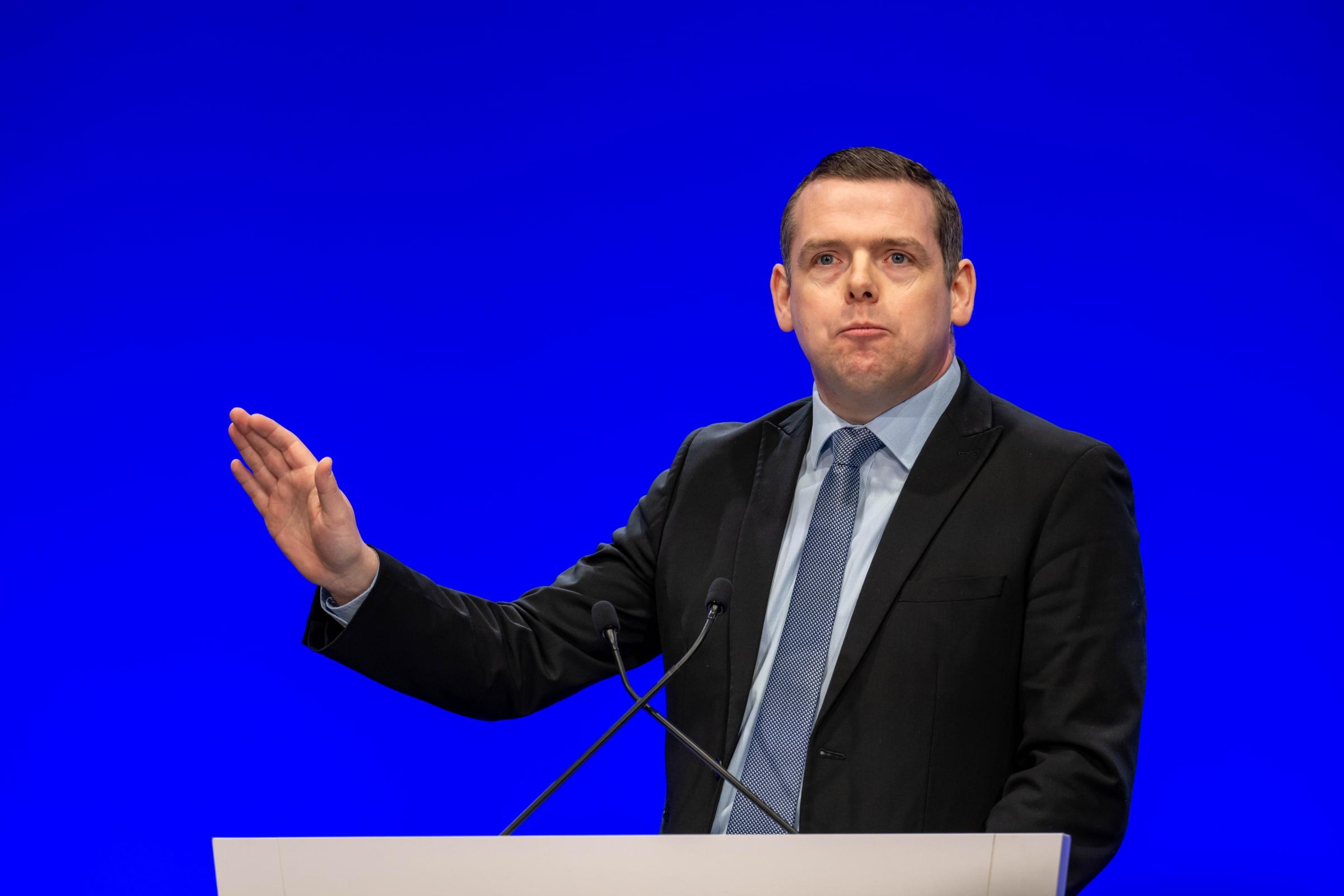Scottish Conservatives leader Douglas Ross has opposed the potential extension of the windfall tax on North Sea oil and gas firms, lobbying Chancellor Jeremy Hunt to drop the plans ahead of the Spring Budget.
Media reports have suggested that Hunt is considering extending the windfall tax until 2029, raising concerns about the energy sector’s impact.
Ross, the MP for Moray, voiced his opposition to the extension in a recent BBC Scotland podcast, highlighting the need for industry certainty.
“What we need for oil and gas companies is certainty going forward,” Ross stated. “A further extension doesn’t provide that certainty.

Douglas Ross (Credits: The National)
So I’ve made the case very strongly to the Chancellor that, if he chooses to go ahead with this, then we’ve got to see what other measures are in place to provide that certainty and security to the oil and gas companies.”
The potential extension of the Energy Profits Levy (EPL) has faced backlash from business leaders in Aberdeen, who argue that it would hinder the industry’s ability to plan for the future. They have been actively campaigning against the extension since rumors about the proposal surfaced last week.
Prime Minister Rishi Sunak, speaking at the Scottish Conservatives conference in Aberdeen, declined to comment on the budget rumors, leaving the industry and policymakers in suspense about the government’s plans.
The windfall tax, originally introduced to ensure that oil and gas companies pay a fair share of profits when oil prices are high, has been a contentious issue in the industry. Critics argue that it could discourage investment and undermine the competitiveness of the sector.
Ross’s intervention reflects growing concerns within the Scottish Conservatives about the impact of the tax on the energy sector and the wider economy. The party has been vocal in its support for the oil and gas industry, which plays a crucial role in Scotland’s economy.
The Chancellor’s decision on whether to extend the windfall tax is eagerly awaited, with stakeholders across the industry watching closely. The outcome of the Budget will have significant implications for the future of the oil and gas sector in Scotland and beyond.
In his lobbying efforts, Ross has emphasized the need for a balanced approach that supports the industry while ensuring that companies pay their fair share.
He has called for measures that provide certainty and security for oil and gas companies, allowing them to plan for the future with confidence.
As the debate continues, the Scottish Conservatives are likely to remain at the forefront of efforts to protect the interests of the oil and gas sector, advocating for policies that support growth and investment in the industry.























